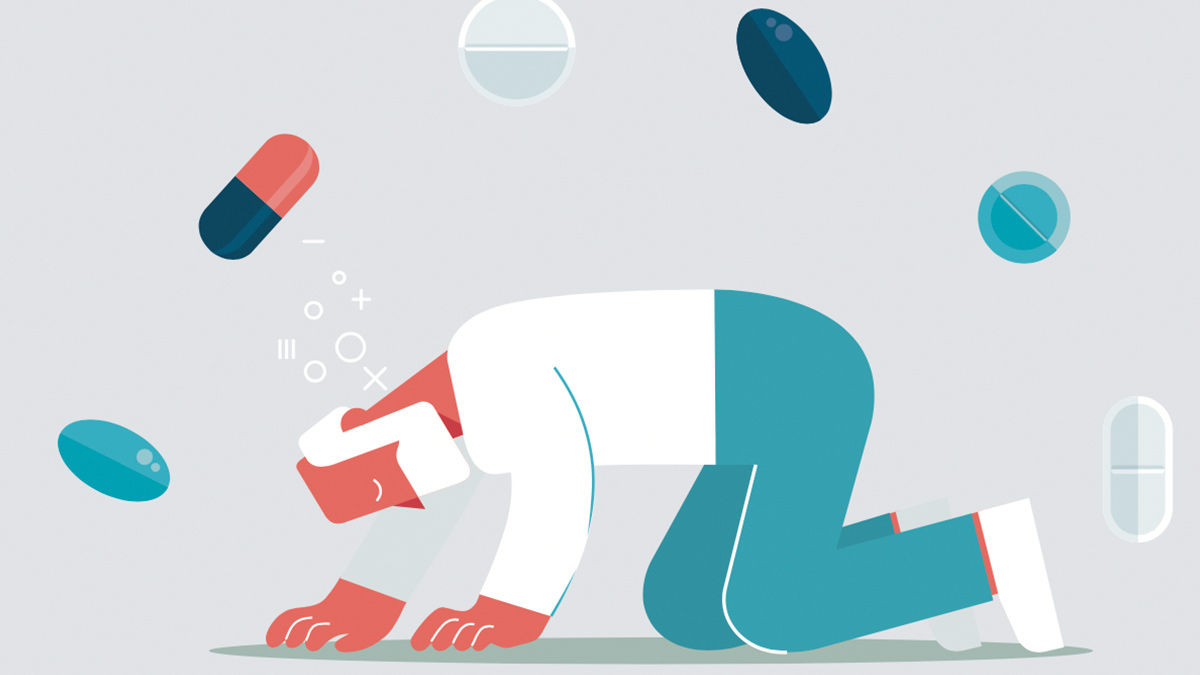And it’s not just a question of dispensing medicines, writes Ultan Molloy, but also a process of retraining and education
I read somewhere before, “If you could only have one car for the rest of your life… how well would you look after it?”. The analogy being drawn, was how well do you look after your body really, given it can’t be replaced. Well, most of it anyway. I realise that nothing is permanent and in spite of any effort we put into looking after ourselves (body and mind), we’ll end up going into the ground or up in smoke at some point in the not to distant future. That being said, and with a finite amount of energy in my mid-forties, the quality of those years ahead can be impacted significantly by one’s behaviour between now and the end of ones days.
I listened to Why We Eat (Too Much!) recently on audiobook, as I’ve moved from 82kg at my lowest nine years ago, post-Ironman Wales, to 102kg a couple of weeks back. Nearly four stone, and I’ve been feeling every kg of it. I remember five or so years back running the Wicklow half marathon at 95kg, and on my way home picking up a 5kg package of washing powder in the shop, and thinking, “I’ve unnecessarily carried that about 30km this morning”. It didn’t feel particularly light, and my weight has been heading one direction since. So the book shone a light on the types of food that I’ve been eating, the importance of investing in one’s sleep, and strategies to decrease one’s overall calorie intake on a day-to-day basis, so as to achieve a lasting healthy weight. The impact of processed foods, the effects of calorie counting diets on our weight set point, as well as insulin resistance, and the fact that what we’re being taught in the western world is good nutritional behaviour (‘The Food Pyramid’) is incorrect and detrimental to our health as individuals and a population, left me both intrigued and saddened. It’s no wonder we have a diabetes, cardiovascular disease, and obesity epidemic when the information we are working with is false and misleading, and the processed food industry is built on manipulating our primal drives and instincts for high calorie, high sugar, ‘food’. Our patients really don’t stand a chance without wholesale retraining and education, do they?. Their weight and health, in the vast majority of cases, is only headed in one direction. It’s a public health disaster with no end in sight, and any amount of medicines will be dispensed in an effort to manage the result of it.
I had my genome mapped to profile my genetic predisposition to diseases, drug metabolism, and some other data, with some interesting results. Learning I’ve a much higher risk of Alzheimer’s disease than your average bear has focused my mind somewhat. From Matthew Walker’s Why We Sleep book, I recall the effect of deep sleep on clearing beta amyloid plaque deposits in one’s brain, so that has to be prioritised to give myself some chance. He notes the lauded Margaret Thatcher boasting about four hours sleep a night, and her eventual descent into dementia. Given the increasing demands on our time and being in the thick of parenting a seven-, six-, and four-year-old, as well as my other roles, puts a significant squeeze on the prospect of getting seven to eight hours of sleep consistently, given that this takes eight to nine hours of time in bed to achieve. The effect of sleep on memory is noted when it comes to students and ourselves, on a day-to-day basis. How unhelpful sleeping tablets can be, due to their effects on deep sleep and REM sleep, and the increased risk of morbidity and mortality in those taking them versus CBT (cognitive behavioural therapy) for insomnia as an intervention for those who need it is explored. All very unfortunate, really. A societal issue, where being busy, and sacrificing sleep in order to increase one’s output, is lauded, but also an issue for us pharmacists, who are somewhat complicit in dispensing these medications on a daily basis. This is what we’ve signed up for, though. I understand that is the job, but surely there are opportunities for us to support patients in their self-management, as part of a holistic healthcare approach, rather than solely dispensing, and advising on how to take them. A decrease in sleep quality, and sleep stage quantity, is after all a side effect. We could put ourselves out of business if we worked hard enough at it, couldn’t we?!
Sweet Jesus, have you read a full patient information leaflet recently?
I had my practice review in the RCSI last Sunday, which I had been dreading somewhat since I got the head’s up on it about six months ago. I had to keep reminding myself that ‘nothing is ever as good or as bad as you think it is’, wherever I got that quote from, in order to give myself some comfort. It certainly wasn’t as bad as I thought it would be, and served to refocus my mind somewhat on what we could be saying to patients as part of comprehensive medication counselling (if we had more time, and if they hung around long enough!), and also gave me pause for thought on what are the key points to get across, and indeed, what might be more important in the interaction, eg ensuring the patient feels heard, comfortable enough to open up, and supported in their experience. One has quite a bit of time as part of the OSCEs, where an actor plays a customer collecting a prescription, and one must counsel them comprehensively in relation to the medicine, its use, side effects, and address any queries or concerns they may have. Sweet Jesus, have you read a full patient information leaflet recently? I’m surprised anybody would ingest any medicines if they were forewarned of all the things that may happen to them, were they one of the unlucky ones! I suspect however, dispensing volumes are only going to increase in the coming years, given our aging population profile. Potential side effects and drug interactions are going to become even more prevalent with polypharmacy, so how can we best support our patients and customers in this, while being clear around what’s most important on a case by case, and medicine by medicine, basis. A daunting task if ever there was one. A shout out to Fiona, Ciaran, and the rest of my colleagues being assessed who were there, along with the support team, support colleagues and IIOP staff. A very well-ran and organised day. I’m not sorry to have it behind me, though.
Ultan Molloy is a business and professional performance coach, pharmacist, facilitator, and development specialist. He works with other pharmacists, business owners, and third parties to develop business strategies. Ultan can be contacted on 086 169 3343.
body. body. body. body.







